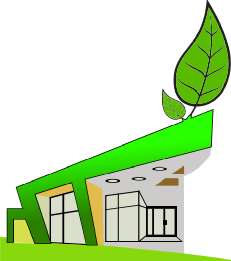Composting is a simple and effective way to reduce waste and create nutrient-rich soil for gardening. Not only does it help reduce the amount of waste that goes into landfills, but it also provides a natural and environmentally friendly alternative to chemical fertilizers. One way to enhance your composting efforts is by utilizing solar power to improve efficiency and sustainability.
To start composting at home, you’ll need a designated area for your compost pile or bin. This can be a small corner of your yard or a compost bin that you can purchase from a garden store. The key to successful composting is to have a good balance of green (nitrogen-rich) and brown (carbon-rich) materials. Green materials include kitchen scraps, grass clippings, and plant trimmings, while brown materials include dried leaves, straw, and newspaper.
Once you have your composting area set up, you can start collecting kitchen scraps such as fruit and vegetable peels, coffee grounds, eggshells, and tea bags to add to your compost pile. It’s essential to chop these materials into smaller pieces to speed up the decomposition process. You can also add yard waste such as grass clippings, weeds, and leaves to provide a mix of green and brown materials.
One of the main challenges of composting is maintaining the right balance of moisture and aeration in your compost pile. To help with this, you can use solar-powered compost aerators or compost tumblers. These devices help aerate the compost pile by turning it regularly, which speeds up the decomposition process and reduces the chances of anaerobic decomposition, which can lead to foul odors.
Additionally, solar-powered compost bins with built-in heating elements can help maintain optimal temperatures for composting, especially during colder months. These bins use solar power to heat up the compost pile, which accelerates the decomposition process and ensures that beneficial microorganisms thrive in the compost.
To further enhance your composting efforts, you can also integrate solar panels to power other gardening tools and equipment. Solar-powered watering systems can help ensure that your compost pile remains moist, while solar-powered lights can illuminate your composting area at night. By utilizing solar power in your composting and gardening activities, you not only reduce your carbon footprint but also save money on electricity bills.
In conclusion, composting is a sustainable and eco-friendly way to manage organic waste and create valuable soil amendments for your garden. By incorporating solar power into your composting routine, you can enhance efficiency, reduce environmental impact, and contribute to a more sustainable future. So start composting at home today and harness the power of the sun to improve your gardening practices.
************
Want to get more details?
GreenReady Roofing and Solar
https://www.greenready.solutions/
9413157760
6151 Lake Osprey Dr, Ste 300, Lakewood Ranch, FL 34240
At GreenReady, we bring roofing expertise, sustainable energy and construction solutions to Florida homes and businesses. As a family-owned, licensed, and insured contracting organization, we specialize in roofing, solar energy, and building services designed to enhance eco-efficiency and reduce costs. Our expertise in roof replacements, custom solar design and installation, and detach & reset of existing solar systems.
